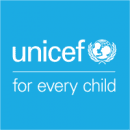UNICEF | WASH Information System Consultant
الوصف الوظيفي
لقد انتهت صلاحية هذه الوظيفة في 2016-06-03
تصفح أحدث الوظائف
عند التقدم لاية وظيفة عن طريق الانترنت، لا تقم بإعطاء معلومات بطاقة الأعتماد او أية معلومات بنكية / مالية لصاحب عمل. نصيحة من جوبس لحمايتك :
آخر الوظائف المعلنة بواسطة
UNICEF - اليونيسف
المسمى الوظيفي
تاريخ النشر
Driver
القدس
30, Jun
Programme Assistant
القدس
28, Mar
WASH Specialist Cluster
القدس
9, Jan
Operations Assistant
القدس
9, Jan
Programme Assistant
قطاع غزة
23, Dec, 2024
Programme Assistant
القدس
23, Dec, 2024
Interpretation Consultant
قطاع غزة
13, Aug, 2023
Translator
قطاع غزة, القدس, رام الله والب...
15, May, 2023









